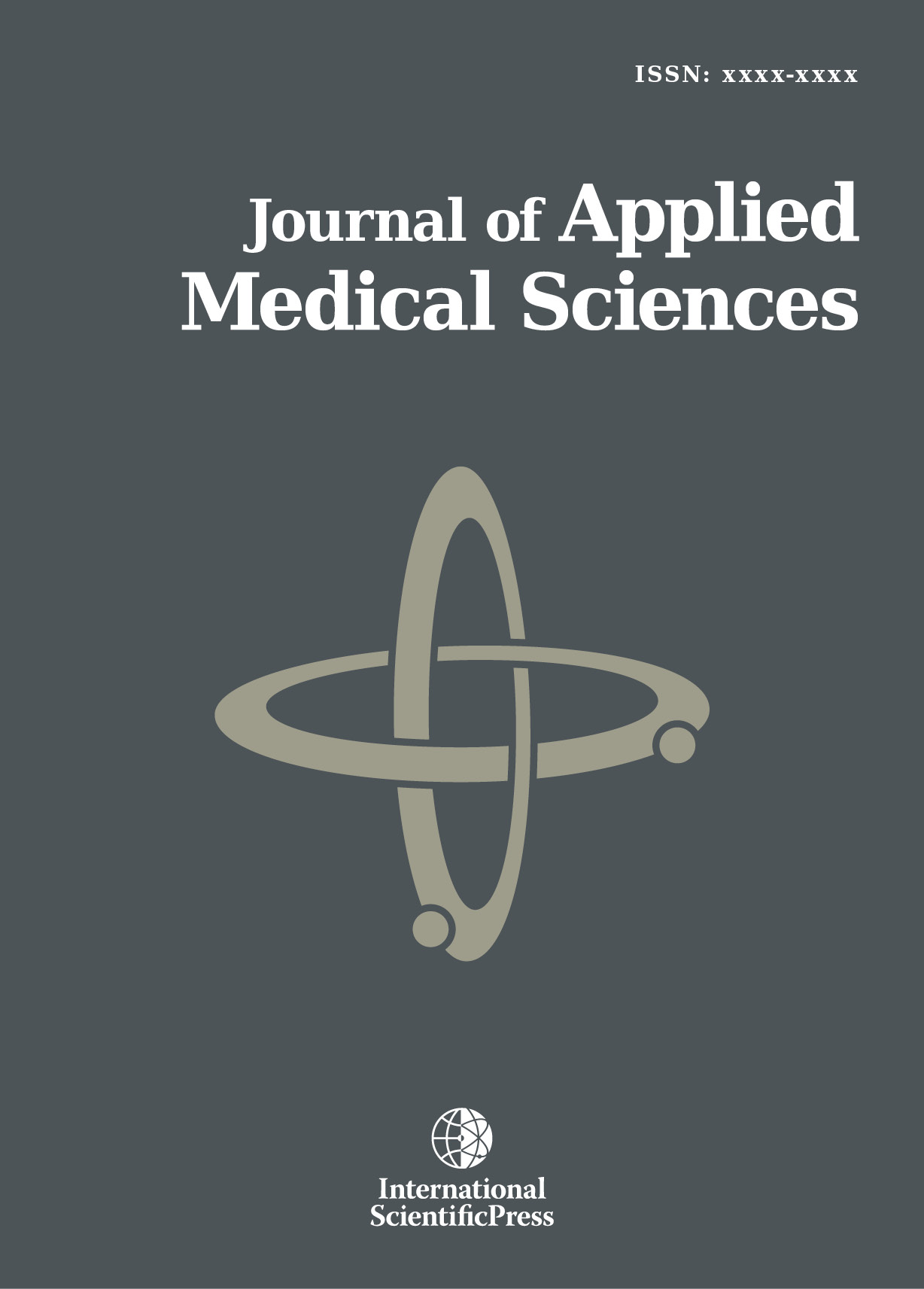Journal of Applied Medical Sciences
Evaluation of Glycated Albumin and Glycated Hemoglobin as Glycemic Indices in Diabetic Patients with Chronic Kidney Disease
-
 [ Download ]
[ Download ]
- Times downloaded: 10364
-
Abstract
In diabetic patients with chronic kidney disease (CKD) or on regular hemodialysis, glycated hemoglobin (HbA1c) can be affected by multiple factors such as reduced red-blood cell lifespan, recent transfusions, iron deficiency, metabolic acidosis or frequent erythropoietin injection, while glycated albumin (GA) is not affected by these factors. Aim of the study is to measure glycated albumin and glycated hemoglobin in these patients to evaluate the significance of each of them as a glycemic index. Subjects and methods: Glycated hemoglobin and glycated albumin levels were measured in 75 patients: 25 with DM were on regular hemodialysis (group I), 25 with DM had chronic kidney disease at different stages (group II), and 25 regular hemodialysis patients without diabetes mellitus (control). Results: GA/HbA1c ratio was significantly increased in dialysis patients (3.8 ± 0.38 %) and CKD patients (3.6 ± 0.2 %), compared with the control (2.7 ± 0.5 %). correlation of GA or HbA1c with fasting blood sugar (FBS) in groups I and II showed; poor level of GA (of 24%) and HbA1c (of 8%) resulted in a FBS of 140-160 and 180-200 mg/dl respectively. Therefore, the GA of 24% was reflected by the FBS of 150 mg/dl. However, categorization of the HbA1c of 8% was an underestimation, as it was reflected by FBS as high as 190 mg/dl. Conclusion: The study concluded that HbA1c may underestimate glycemic control status in diabetic patients with CKD and hemodialysis patients. In these patients, GA can reflect a reliable glycemic control status.
